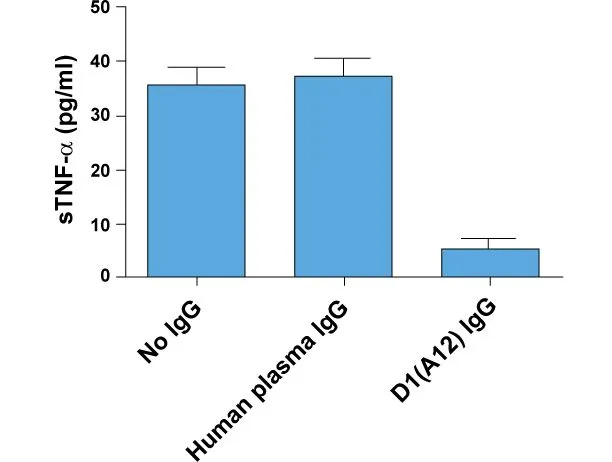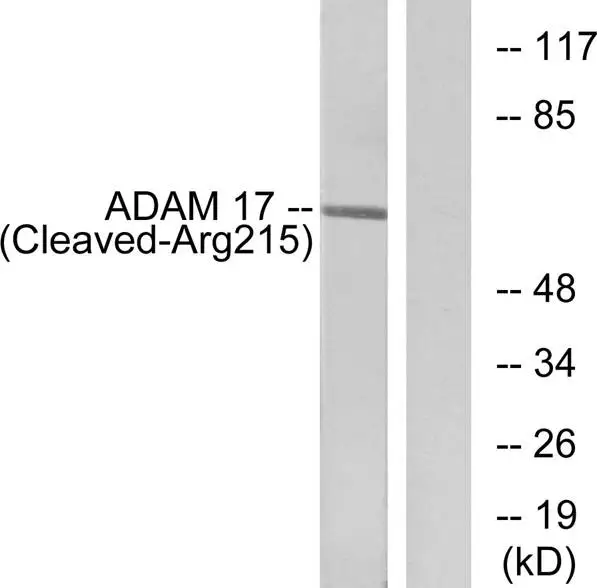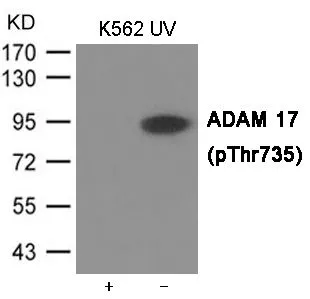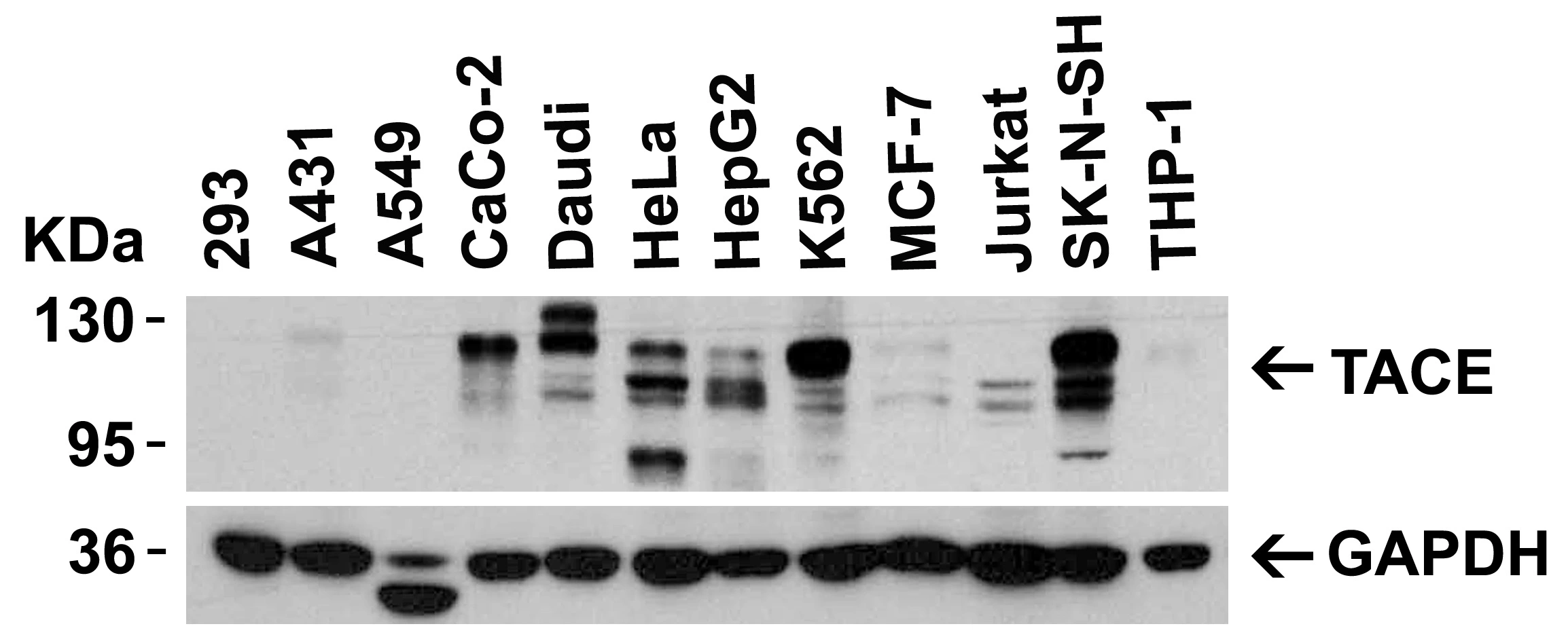
D1(A12) IgG inhibits constitutive shedding of TNF-alpha from IGROV1 (human ovarian cancer cell line) into culture medium. Medium was collected after 48 hours of incubation with or without IgGs at 200nM.
ADAM17 antibody [D1(A12)] (Azide free)
GTX33911
ApplicationsNeutralisation/Blocking
Product group Antibodies
TargetADAM17
Overview
- SupplierGeneTex
- Product NameADAM17 antibody [D1(A12)] (Azide free)
- Delivery Days Customer9
- Application Supplier NoteNeutralizing/Inhibition: . *Optimal dilutions/concentrations should be determined by the researcher.Not tested in other applications.
- ApplicationsNeutralisation/Blocking
- CertificationResearch Use Only
- ClonalityMonoclonal
- Clone IDD1(A12)
- Concentration1 mg/ml
- ConjugateUnconjugated
- Gene ID6868
- Target nameADAM17
- Target descriptionADAM metallopeptidase domain 17
- Target synonymsa disintegrin and metalloproteinase 17; ADAM metallopeptidase domain 18; ADAM18; cartilage snake venom-like protease; CD156B; CSVP; disintegrin and metalloproteinase domain-containing protein 17; NISBD; NISBD1; snake venom-like protease; TACE; TNF-alpha convertase; TNF-alpha convertase enzyme; TNF-alpha converting enzyme; tumor necrosis factor, alpha, converting enzyme
- HostHuman
- IsotypeIgG1
- Protein IDP78536
- Protein NameDisintegrin and metalloproteinase domain-containing protein 17
- Scientific DescriptionThis gene encodes a member of the ADAM (a disintegrin and metalloprotease domain) family. Members of this family are membrane-anchored proteins structurally related to snake venom disintegrins, and have been implicated in a variety of biologic processes involving cell-cell and cell-matrix interactions, including fertilization, muscle development, and neurogenesis. The encoded preproprotein is proteolytically processed to generate the mature protease. The encoded protease functions in the ectodomain shedding of tumor necrosis factor-alpha, in which soluble tumor necrosis factor-alpha is released from the membrane-bound precursor. This protease also functions in the processing of numerous other substrates, including cell adhesion proteins, cytokine and growth factor receptors and epidermal growth factor (EGF) receptor ligands. The encoded protein also plays a prominent role in the activation of the Notch signaling pathway. Elevated expression of this gene has been observed in specific cell types derived from psoriasis, rheumatoid arthritis, multiple sclerosis and Crohns disease patients, suggesting that the encoded protein may play a role in autoimmune disease. [provided by RefSeq, Feb 2016]
- Storage Instruction-20°C or -80°C,2°C to 8°C
- UNSPSC12352203






